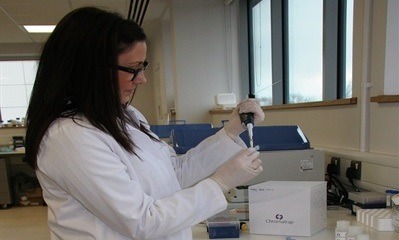
Chromatrap, Porvair Science’s solid-based matrix for chromatin immunoprecipitation (ChIP) assays, has been used to isolate high quality chromatin from difficult biopsy material.
Focusing on the precipitation of epigenetic marks from primary endometrial stromal cells, researchers have produced excellent enrichment of high abundant epigenetic marks from 1 million cells isolated from a tissue biopsy.
The selective enrichment using Chromatrap was highlighted by the selective amplification of both positive and negative gene targets relative to negative IgG.
The work shows how the Chromatrap ChIP Assay Kit is able to delineate the balance between active and repressive associated marks and also is compatible with human tissue.
Chromatrap uses a solid phase porous polymer functionalised with protein A or G, allowing much greater chromatin and antibody capture than bead-based methods.
The Chromatrap spin column claims to offer significant advantages compared to methods based on sepharose or magnetic beads, which involve many steps of separation, pipetting and re-suspension.
According to Porvair, independent tests with Chromatrap demonstrate the reproducibility of the assay and the strong fold amplification above negative IgG background, enabling the targeting of abundant and low abundant marks at multiple gene targets.
The company also claims that levels of DNA pull-down are up to 25 times higher than with traditional bead based procedures.
Top performance even with samples as small as 50ng-3000ng chromatin per immunoprecipitation enables Chromatrap to be used on small scale biopsies .
The protocol to enrich epigenetic histone marks from primary human tissue cells is detailed in an application note that may be downloaded online.






